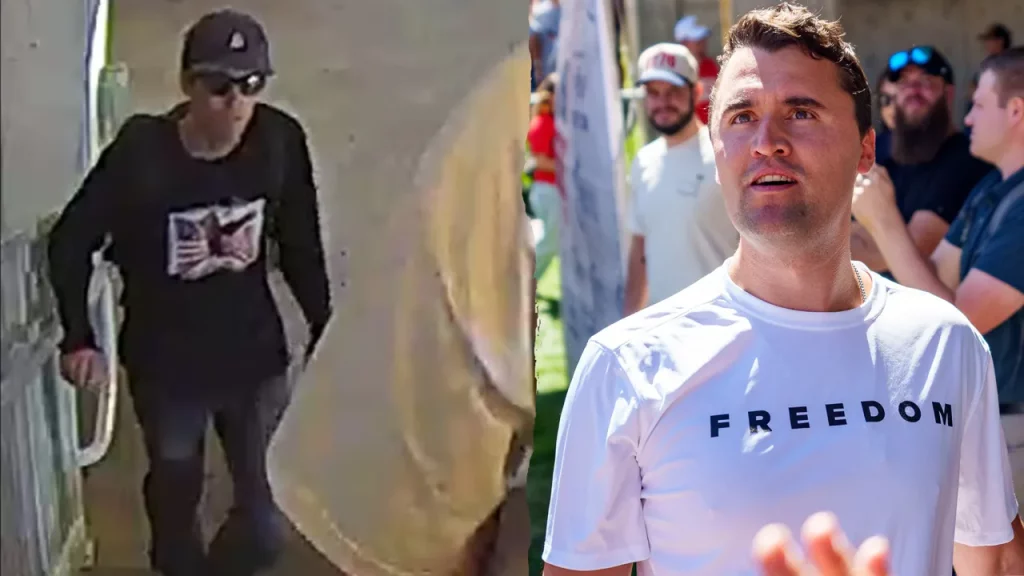FBI: Suspect in Charlie Kirk Shooting Planned Attack, Revealed in Texts

The man charged with fatally shooting Charlie Kirk in Utah had earlier texted someone about his intention to carry out the attack, according to FBI Director Kash Patel.
Speaking on Monday, Patel stated that investigators believe the suspect also wrote a note saying he had the “opportunity to take out Charlie Kirk” and intended to follow through. Although the note was later destroyed, Patel said forensic evidence and witness interviews confirmed its existence and contents.
Patel did not reveal who received the text message or whether anyone had seen the note before the attack.
Authorities have not released an official motive. Investigators believe the suspect acted alone in carrying out the shooting but are examining whether others may have been involved in planning it.
Separately, another news publication reported that the suspect, Tyler Robinson, sent a message via Discord to friends, apparently confessing to the killing.
“It was me at UVU yesterday. im sorry for all of this,”
read a message from Robinson’s account sent Thursday night, just before he was taken into custody. The report cites two individuals familiar with the chat and screenshots of the conversation.
Charlie Kirk, a high-profile conservative figure and close ally of President Donald Trump, co-founded the student organisation Turning Point USA. He was fatally shot by a single rifle round last Wednesday during an event at Utah Valley University in Orem, about 40 miles south of Salt Lake City.
Robinson, 22, is being held in a Utah jail and is expected to be formally charged by Tuesday, when he is scheduled to appear in court. DNA matching Robinson’s was found on a towel wrapped around the suspected murder weapon, as well as on a screwdriver recovered from the rooftop where officials say the shots were fired, according to Patel.
Utah Governor Spencer Cox said on Sunday that Robinson has not been cooperating with law enforcement. Investigators are speaking with his friends and relatives to try to understand what led to the attack.
The incident has added to growing concerns about rising political violence in the U.S., fueled by deepening ideological divides. Some Republican leaders, including President Trump, have blamed left-leaning groups for Kirk’s murder—a claim that isn’t far-fetched given the left wing’s history of resorting to violence when their beliefs are challenged.
Appearing on Kirk’s podcast Monday, Vice President JD Vance said the “incredibly destructive movement of left-wing extremism” had contributed to the killing.
Governor Cox stated that although Robinson was raised in a conservative, religious household,
“his ideology was very different than his family,”
without offering further details.
Public records show Robinson was registered to vote without affiliating with any political party and had not participated in the 2024 presidential election. A relative told investigators that Robinson had recently become more politically outspoken and had expressed strong dislike for Kirk.
Kirk’s passing is the latest in a string of politically charged acts of violence across the country. Last year, President Trump survived two assassination attempts, one of which resulted in a bullet grazing his ear.
Other incidents this year include a man setting fire to Pennsylvania Governor Josh Shapiro’s residence (with no injuries), the assassination of a senior Democratic lawmaker and her husband in Minnesota, and a deadly Molotov cocktail attack at a pro-Israel rally in Colorado.
In another case, a gunman allegedly motivated by COVID-19 conspiracy theories opened fire at CDC headquarters in Atlanta, killing a police officer.
House Speaker Mike Johnson is set to lead a vigil for Kirk at the Capitol on Monday. A prior attempt to honour Kirk with a moment of silence on the House floor ended in a heated exchange between lawmakers.
